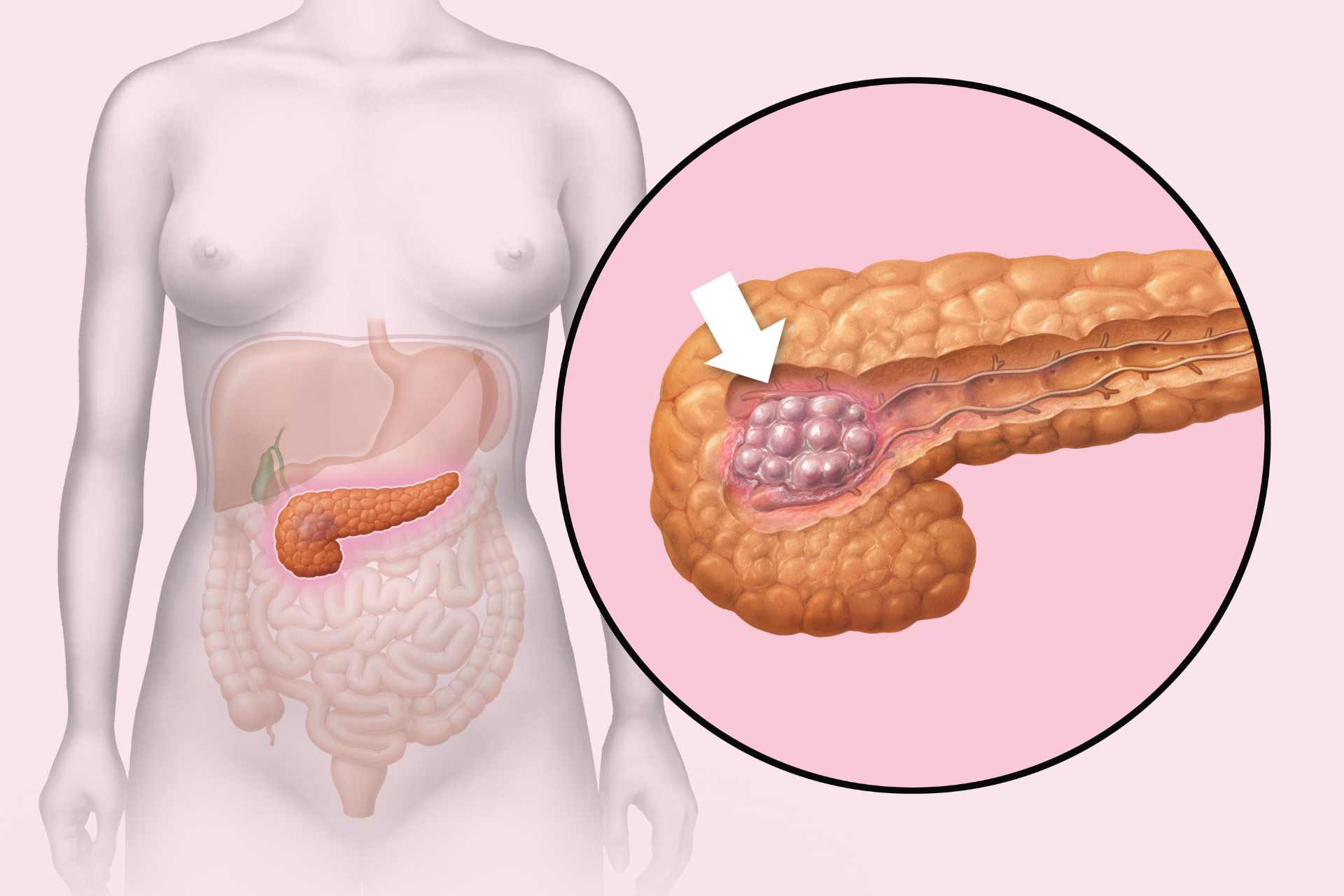What is already known
Microbes have been detected in many organs and even within tumors. Some studies have suggested that bacteria can travel to the pancreas and induce changes that may promote the development of pancreatic cancer, but how microbes influence tumor development and progression remains unclear.
What this research adds
Researchers examined the microbiota of 41 pancreatic tumors samples and 14 normal pancreatic tissues. They found that most pancreatic tumors had bacteria that associated with specific cells, but these bacteria were mostly absent in healthy tissues. The bacteria were predominantly located within tumor cells, and their presence was associated with inflammation and poor survival. Modeling results suggested that the immune cells present within the tumor were responding mostly to the microbes rather than the cancer cells.
Conclusions
The findings may help to develop improved diagnostic or treatment approaches for pancreatic cancer.
Microbes have been detected in many organs and even within tumors. Now, researchers have shed light on the interactions between pancreatic tumors and their microbiotas, suggesting that immune cells within the tumor respond predominantly to the tumor microbiota than to cancer cells.
The findings, published in Cancer Cell, may help to develop improved diagnostic or treatment approaches for pancreatic cancer. They may also provide an explanation for why pancreatic cancers are so difficult to treat.
Some studies have suggested that bacteria can travel to the pancreas and induce changes that may promote the development of pancreatic cancer, but how microbes influence tumor development and progression remains unclear.
To identify the bacteria residing in pancreatic tumors and investigate if they affect cancer progression, a team of researchers led by Subhajyoti De at Rutgers University examined the microbiota of 41 pancreatic tumors samples and 14 normal pancreatic tissues.
Tumor microbiota
To identify tumor-associated microbes, the researchers used an approach called SAHMI (Single-cell analysis of Host-Microbiome Interactions), which scours millions of RNA sequences to distinguish human genes from microbial ones.
The team analyzed samples from two independent groups of pancreatic tumors. They detected microbes in 87% of the pancreatic samples tested and identified 19 bacterial genera that were present in both groups of pancreatic tumors. Bacteria were mostly absent in healthy tissues.
In pancreatic tumors, the most common bacteria were Campylobacter species, which are known to cause inflammation of the gut and other body parts. Other common bacteria included Fusobacterium nucleatum, which is associated with colorectal cancer, and Clostridioides difficile, a gut pathogen that has been linked to pancreas disease.
Poor survival
In tumors, bacteria were predominantly located within cancer cells, and their presence correlated with activities — including cell motility and immune signaling — that are associated with cancer. These observations, the researchers say, “consistently associate microbiota with key cancer-related cellular processes in individual cell types in the tumor microenvironment.”
The presence of tumor-associated microbes was also predictive of aggressive cancer progression and poor survival, the researchers found.
What’s more, the team discovered that tumors with cell-associated bacteria have activated immune cells. However, modeling results suggested that the immune cells present within the tumor were responding mostly to the microbes rather than the cancer cells.
“Our results provide evidence that intra-tumoral bacteria reflect or influence the trajectory of tumor growth; either possibility has clinical utility,” the authors say.









